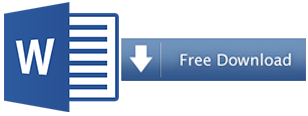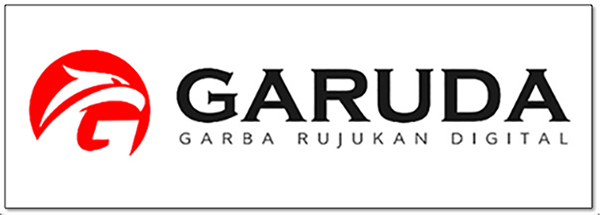Meninjau Kembali Ruang Publik: Tinjauan Literatur Tentang Media Sosial Dan Pembentukan Agenda Politik Melalui Lensa Habermas
Abstract
ABSTRAK
Di era digital saat ini, platform media sosial telah menjadi sangat penting dalam membentuk persepsi publik dan agenda politik. Berita palsu, diperparah dengan adanya manipulasi media sosial, memiliki potensi untuk mempengaruhi opini publik dan bahkan mempengaruhi hasil pemilu. Penelitian ini memiliki tujuan menganalisi bagaimana dampak berita palsu terhadap persepsi publik yang berdampak pada polarisasi dan posisi media sosial sebagai ruang publik dalam menentukan agenda politik. Penelitian ini menggunakan teori komunikasi kultivasi dan uses and gratification untuk menyelidiki kekuatan media sosial dalam membentuk agenda politik. Selain itu, penggunaan teori ruang publik Habermas digunakan untuk mengelaborasi dampak ruang publik di media sosial. Penelitian dilakukan dengan metode studi literature dengan analisis tematik berkaitan dengan kata kunci sosial media, ruang publik, komunikasi politik, dan agenda politik. Hasil penelitian menunjukkan bagaimana individu secara aktif mengonsumsi berita palsu untuk mememnuhi kebutuhan psikologis dan penggunaan media sosial secara strategis oleh paraaktor politik untuk menyebarkan propaganda dan memajukan politik. Paparan informasi yang salah secara terus menerus di media sosial menumbuhkan persepsi yang terdistorsi tentang realitas politik di antara para pengguna, sementara mempertanyakan konstruksi ruang publik deliberative di media sosial manakala agenda politik di media sudah ditetapkan oleh para aktor politik. Penelitian ini memberikan sumbangsih pada pemahaman yang lebih mendalam tentang dinamika kompleks terkait media sosial, dalam membentuk wacana dan opini publik di era digital disaat bersamaa, ruang publik yang dikonstruksi oleh aktor politik berpengaruh.
Kata Kunci: Agenda Politik, Polarisasi Politik, Ruang Publik, Sosial Media
ABSTRACT
In the contemporary digital era, social media platforms have assumed a pivotal role in shaping public perception and influencing political agendas. The dissemination of disinformation, exacerbated by the manipulation of social media platforms, possesses the capacity to influence public sentiment and potentially impact the outcomes of electoral processes. The present study aims to analyse the impact of fake news on public perceptions that lead to polarisation and the position of social media as a public space in determining the political agenda. The present study employs cultivation communication theory and uses and gratification to investigate the influence of social media in shaping the political agenda. Furthermore, Habermas' concept of the public sphere is employed to elucidate the influence of this sphere on social media. The research was conducted using a literature study method with thematic analysis related to the keywords social media, public sphere, political communication, and political agenda. The results indicate that individuals actively consume fake news to fulfil psychological needs. Furthermore, the strategic use of social media by political actors to spread propaganda and further their political agenda is evident. The pervasive dissemination of misinformation through social media engenders a distorted perception of political reality among users, thereby challenging the establishment of a deliberative public sphere within this digital domain. This is further compounded by the pre-established political agenda within media platforms, which is largely dictated by political actors. This research contributes to a more profound comprehension of the intricate dynamics associated with social media, in shaping public discourse and opinion in the digital age. Concurrently, the public sphere is constructed by influential political actors.
Keywords: Political Agenda, Political Polarization, Public Space, Sosial Media
Keywords
Full Text:
PDF (Bahasa Indonesia)References
Campante, F., Hojman, D., Alesina, A., Bates, R., Baum, M., Brown, S., Chor, D., Della Vigna, S., Ferraz, C., Frieden, J., Friedman, J., Gentzkow, M., Glaeser, E., Goodman, J., Hanna, R., Ferrara, E., Luttmer, E., Naidu, S., Persson, T., & Powell, R. (2013). Media and Polarization Evidence from the Introduction of Broadcast TV in the United States. Retrieved from https://wcfia.harvard.edu/files/wcfia/files/rcampa nte_media_polarization.pdf
Casero-Ripollés, A., Alonso-Muñoz, L., & Marcos-García, S. (2021). The Influence of Political Actors in the Digital Public Debate on Twitter About the Negotiations for the Formation of the Government in Spain. American Behavioral Scientist, 66(3), 307–322. https://doi.org/10.1177/00027642211003159
Dowler, E., Green, J., Bauer, M., & Gasperoni, G. (2006, January). Assessing public perception: issues and methods. ResearchGate. Retrieved from https://www.researchgate.net/publication/3052811 8_Assessing_public_perception_issues_and_meth ods
Duche-Pérez, A. B., Vera-Revilla, C. Y., Plata, A. R. M. R., Gutiérrez-Aguilar, O. A., Hillpa-Zuñiga, M. E., & Juárez, A. M. E. (2023). Agenda Setting in Social Networks and the Media during Presidential Elections. HUMAN REVIEW. International Humanities Review / Revista Internacional de Humanidades, 21(1), 55–70. https://doi.org/10.37467/revhuman.v21.5031
Gilardi, F., Gessler, T., Kubli, M., & Müller, S. (2021). Social Media and Political Agenda Setting. Political Communication, 39(1), 1–22. https://doi.org/10.1080/10584609.2021.1910390
Harahap, H. I. (2021). The Driving Factor for Stability of Voter Turnout in Southeast Asia: The Evidence from Malaysian and Indonesian Elections. Journal of Social and Political Sciences, 4(1). https://doi.org/10.31014/aior.1991.04.01.252
Kubin, E., & von Sikorski, C. (2021). The role of (social) media in political polarization: a systematic review. Annals of the International Communication Association, 45(3), 188–206. https://doi.org/10.1080/23808985.2021.1976070
Li, M. (2021, July 22). Digital Activism: Social Movement on Social Media. Psychology Today. Retrieved from https://www.psychologytoday.com/us/blog/unders tanding-the-social-world/202107/digital-activism- social-movement-social-media
Maraj, L. M., Prasad, P., & Roundtree, S. V. (2018). #BlackLivesMatter: pasts, presents, and futures. Prose Studies, 40(1-2), 1–14. https://doi.org/10.1080/01440357.2019.1668638
Maulandari, A., Yustitia, S., & Susilo, M. E. (2019). MASS MEDIA AND IMAGE OF
POLITICAL ACTORS. The Indonesian Journal of Communication Studies, 10(1), 13–25. https://doi.org/10.31315/ijcs.v10i1.2941
Maurer, P. (2022). Perceptions of media influence and performance among politicians in European democracies. Retrieved from https://doi.org/10.1177/17480485221146088
Muhammad, F., Ahmad, Omar, F., Ganti, W., & Ghapar, W. (2023). Exploring the Influence of Propaganda, Digital Media, and Political Polarization in PRN15 State Elections. Retrieved from https://www.ipptar.gov.my/phocadownload/ejurna l/2023/artikel-pilihan/Artikel9_2023.pdf
Muhammad, F., Ahmad, Omar, F., Ganti, W., & Ghapar, W. (2024). Exploring the Influence of Propaganda, Digital Media, and Political Polarization in PRN15 State Elections. Retrieved from https://www.ipptar.gov.my/phocadownload/ejurna l/2023/artikel-pilihan/Artikel9_2023.pdf
Muhammad, F., Bakti, A. M. F., Johori, M. R., & Saleh, S. P. (2023). Political communication of the Prime Minister of Malaysia Anwar Ibrahim on Twitter. Otoritas : Jurnal Ilmu Pemerintahan, 13(3), 364–376. https://doi.org/10.26618/ojip.v13i3.12741
Morgan, M. G. (1997). The National Academies Press. Retrieved from https://nap.nationalacademies.org/read/4982/chapt er/18
Nouri, M. (2018). The Power of Influence: Traditional Celebrity vs Social Media Influencer. Retrieved from https://scholarcommons.scu.edu/cgi/viewcontent.c gi?article=1032&context=engl_176
Paudel, U. R., Gupta, R., Poudel, S., & Adhikari, K. (2018). Political Party Perception and Voting Behavior of People: A Study of Communication Perspective from Nepal. Advances in Literary Study, 06(04), 179–192. https://doi.org/10.4236/als.2018.64016
Pew Research Center. (2015, November 23). Perceptions of the public’s voice in government and politics. Retrieved from https://www.pewresearch.org/politics/2015/11/23/8-perceptions-of-the-publics-voice-in-government-and-politics/
Ricketts, S. (2021). Do Political Actors Engage in Strategic Deception on Social Media? Warwick Monash Economics Student Papers 2021/16. Retrieved from https://warwick.ac.uk/fac/soc/economics/research/ wmesp/manage/16_-_simon_ricketts.pdf
Ritze, George & Goodman, Douglas J. (2003). Teori Sosiologi Modern Edisi Ke-6. Jakarta: Prenada Media.
Salman, A., & Mohamad Salleh, M. A. (2020). Examining Relationship Between Political Agenda on Social media and Political Support Among University Students. Jurnal Komunikasi: Malaysian Journal of Communication, 36(3), 281–295. https://doi.org/10.17576/jkmjc-2020-3603-17
Sevenans, J., Stefaan Walgrave, Jansen, A., Karolin Soontjens, Brack, N., & Bailer, S. (2023). Projection in Politicians’ Perceptions of Public Opinion. Political Psychology, 44(6), 1259–1279. https://doi.org/10.1111/pops.12900
Toklo, S. (2022). THE EFFECTS OF CORRUPTION PERCEPTION ON POLITICAL PARTICIPATION: EVIDENCE FROM AFRICA. Вестник Пермского университета. Политология, 16(2), 109–122. https://doi.org/10.17072/2218-1067-2022-2-109-1 22
Refbacks
- There are currently no refbacks.












